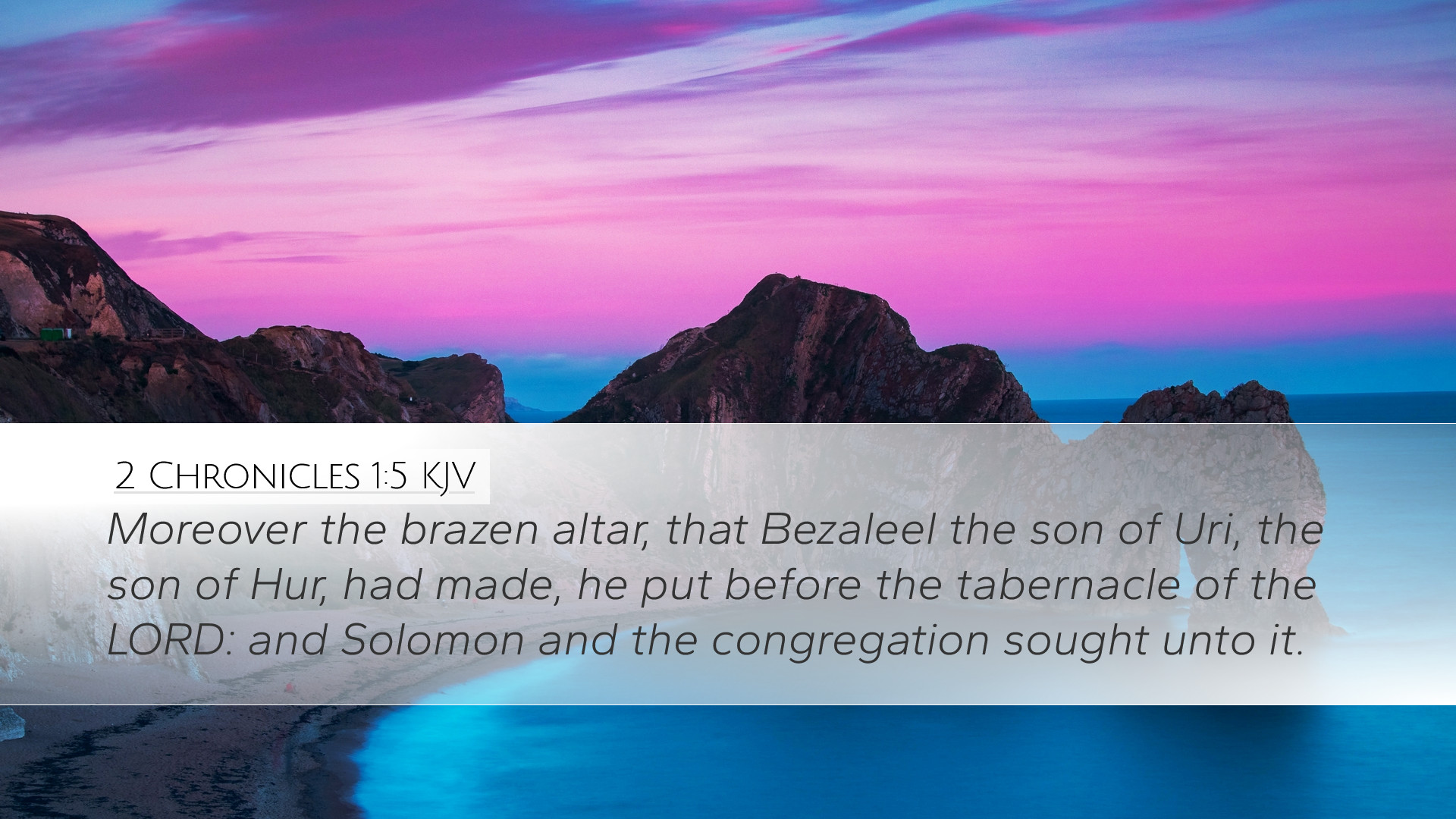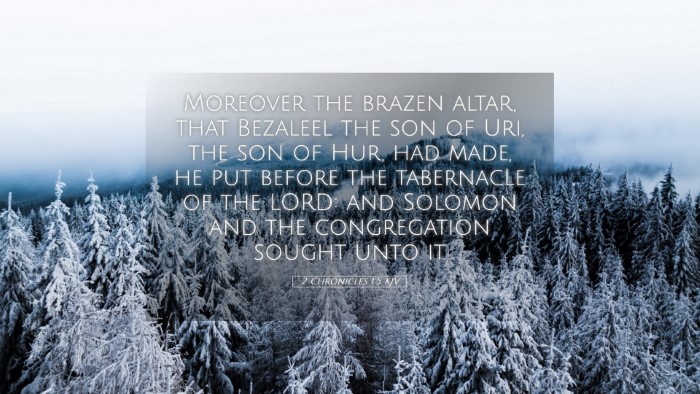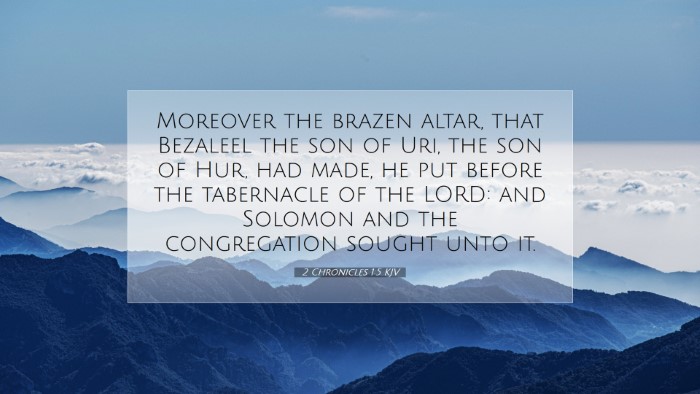Commentary on 2 Chronicles 1:5
Verse Reference: 2 Chronicles 1:5 (NIV) – "The bronze altar that Bezalel son of Uri, the son of Hur, had made was there in front of the tabernacle of the LORD; Solomon and the assembly inquired of him there."
Introduction
The narrative in 2 Chronicles 1:5 highlights a pivotal moment in Israel's history. This passage reveals the significance of the sacrificial altar and the divine guidance sought by Solomon. In this commentary, we will explore the historical context, theological implications, and practical applications of this verse by synthesizing insights from esteemed commentators such as Matthew Henry, Albert Barnes, and Adam Clarke.
Contextual Insight
This verse occurs shortly after Solomon's ascendance to the throne following David's reign. The context centers around the importance of worship and the people's collective inquiry for wisdom. Matthew Henry emphasizes the transitional leadership of Solomon, noting how this moment marks his devotion to God and the continuity of the worship established by David.
Understanding the Bronze Altar
Albert Barnes elucidates the significance of the bronze altar, crafted by Bezalel, which symbolizes Israel's sacrificial system. This altar, a central fixture in the worship practices of the Israelites, was crucial for atonement and communion with God. The presence of this altar at the tabernacle signifies the direct link between divine worship and regional governance.
- The altar illustrates the necessity of blood sacrifice for atonement.
- It highlights the continuity of religious practice from the Exodus through to Solomon's reign.
- Connecting with the altar reflects Solomon's desire to seek divine favor and wisdom.
Assembly and Worship
In this verse, the assembly's role is crucial, reiterating the communal aspect of worship. Adam Clarke comments on how this gathering symbolizes unity among the people, as they collectively seek guidance from God. This act underscores the importance of humility before God, emphasizing that the pursuit of wisdom and direction should be a community endeavor rather than an isolated pursuit.
Characteristics of the Assembly's Inquiry
The assembly’s inquiry embodies key characteristics:
- Unity: Their coming together signifies the importance of unity among believers in seeking God's will.
- Reverence: Approaching the altar highlights the reverence and recognition of God’s holiness.
- Dependence: The inquiry represents a recognition of human limitations and the need for divine wisdom.
The Theological Significance
This passage identifies foundational truths about God's nature and His relationship with humanity. Matthew Henry points out that God welcomes His people to inquire of Him, establishing a pattern of divine communication and guidance. This verse lays the groundwork for understanding prayer and supplication as vital components of worship.
- The sovereignty of God: God's readiness to provide wisdom reflects His sovereign will.
- Access to God: The altar serves as a means to approach God, illustrating access through sacrifice.
- Divine guidance: The inquiry for wisdom parallels the believer’s need to seek God’s guidance in all aspects of life.
Practical Applications
The themes present in 2 Chronicles 1:5 provide significant practical applications for pastors, students, theologians, and Bible scholars:
- Church Leadership: Leaders, like Solomon, must prioritize divine guidance and emphasize community worship.
- Worship Practices: Understanding the importance of sacrificial worship can shape contemporary practices, encouraging remembrance of Christ's ultimate sacrifice.
- Community Engagement: Encouraging congregational participation in seeking divine wisdom highlights the necessity of collective faith and dependence on God.
Conclusion
2 Chronicles 1:5 offers profound insights into the intersection of leadership, worship, and divine inquiry. By reflecting on the historical context and the theological principles embedded in this verse, believers can gain a deeper understanding of how to approach God in worship and how to seek His guidance actively. The collective inquiry of Solomon and the assembly serves as a timeless reminder of the importance of unity, reverence, and dependence on God for wisdom and direction.


